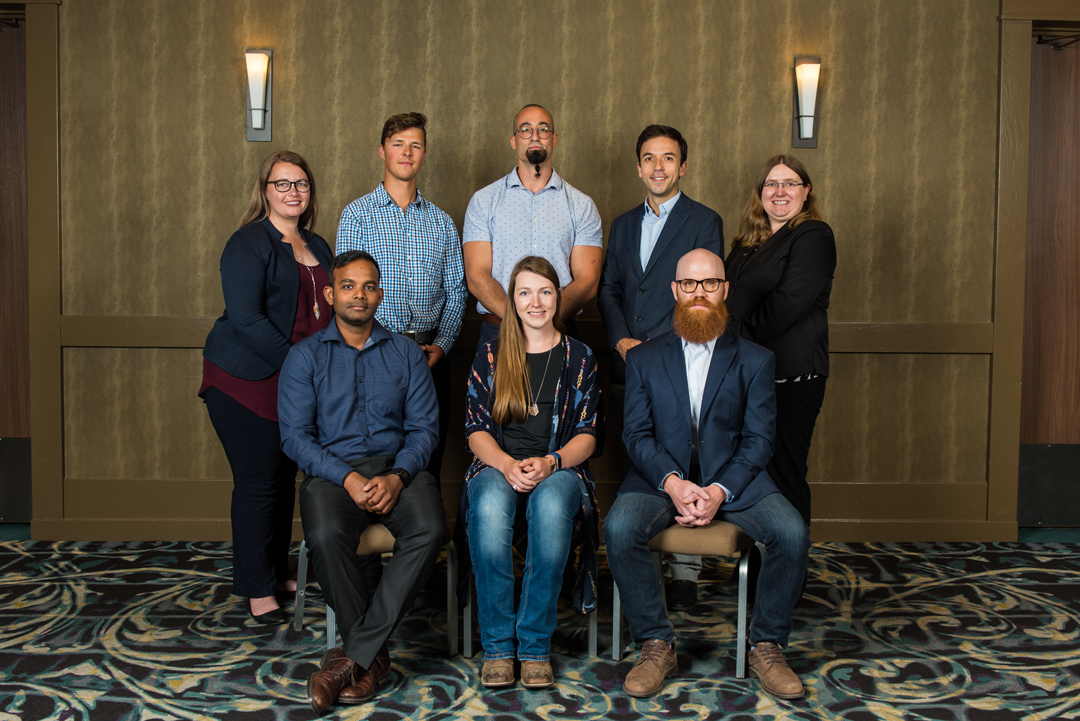THE GATE CHALLENGE
BY ELLEN PRUDEN
From its current facility, located in a federal government-owned highrise in downtown Winnipeg, Cereals Canada focuses on market development, technical support and market access for Canadian cereal grains. While the organization’s current space has served its purpose for over half a century, the time has come to look ahead and envision the next 50 years for Canadian agriculture. Because it has outgrown the space, it can’t expand its services. New equipment can’t be brought in due to the limitations of the building’s electrical and mechanical infrastructure. As well, the operation of its flour mill on the 11th floor of an urban office tower has always made grain delivery logistics tricky.
More concerning, in addition to these deficiencies and challenges, Cereals Canada will be without its long-term, stable tenure when its lease expires in 2027. Without the abovementioned resources, the vital work conducted by Cereals Canada to benefit farmers, researchers, industry and customers is at risk.
We envision the Global Agriculture Technology Exchange (Gate) as the answer to this pressing problem. To create a new facility that meets the needs of an organization as unique as Cereals Canada is a big undertaking and requires due diligence. To this end, the organization has consulted with engineers and infrastructure experts to evaluate its operational requirements. All concluded that to build a new facility is the best option. The reasons include the following:
1. The specialized equipment required for training and testing, including milling, pasta and noodle making, baking and analysis, necessitates specific space and mechanical requirements that a conventional building cannot accommodate.
2. The specific space and mechanical requirements make the retrofit of an existing commercial space impossible.
3. Short-term rental agreements are inconsistent with Cereals Canada’s strategic direction, operationally unfeasible, and are, therefore,
unsustainable.
Gate will house state-of-the-art laboratories, a flour mill and end-product production and assessment areas. These will allow Cereals Canada to maintain the globally recognized, best-in-class expertise needed to support today’s global markets and to explore new market trends and technologies of the future. However, Gate will be more than just a technical facility.
“Gate will be a hub for food and agriculture innovation, supporting today’s increasingly complex global markets while exploring future trends and technologies and driving transformative change through advanced research and collaboration,” said CEO Dean Dias. “By leveraging the technical facility and our international engagement effectively, the Canadian value chain, including growers, can assert our presence in global markets, differentiate our products and secure Canada’s position as a preferred supplier, ensuring the continued prosperity of the entire value chain.”
Gate represents a bold step forward for Canadian agriculture as the country faces growing global competition and the necessity to demonstrate a commitment to sustainable farming practices.
“Growers are an integral part of the cereals value chain. It starts with us at the farm and our investment in plant breeding and variety development. We consistently grow high-quality grains for our global markets and our work with Cereals Canada helps farmers translate this investment into market success,” said Greg Sears, Sexsmith area farmer and board member of Alberta Grains and Cereals Canada.
Through advanced research, innovation and collaboration, Cereals Canada envisions the work done in the new, purpose-built facility will drive change, help the cereals industry to grow, thrive and ensure Canada remains a leader in the global grain market for generations to come.
For more information on Gate, visit gate-canada.ca.
Ellen Pruden is Cereals Canada director of communications.







Comments